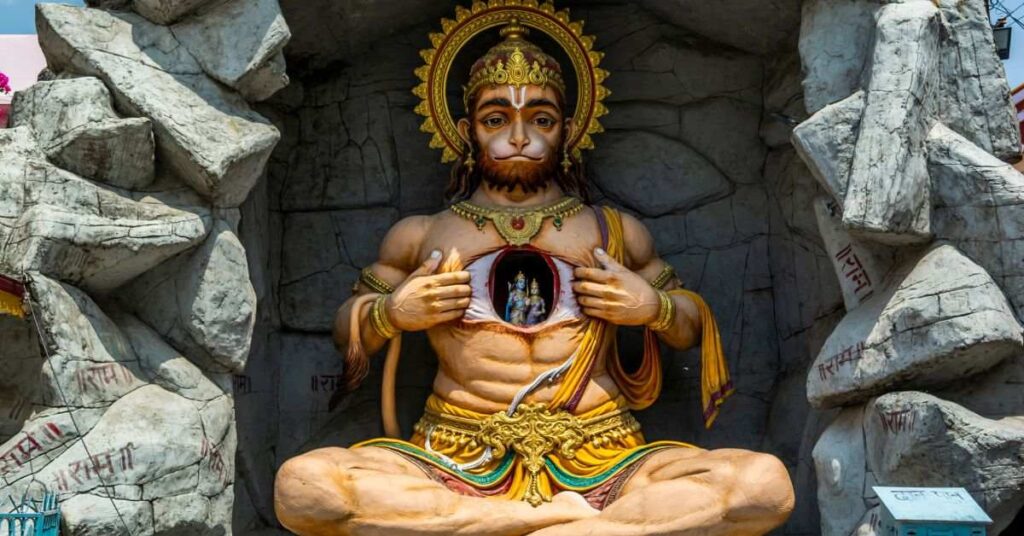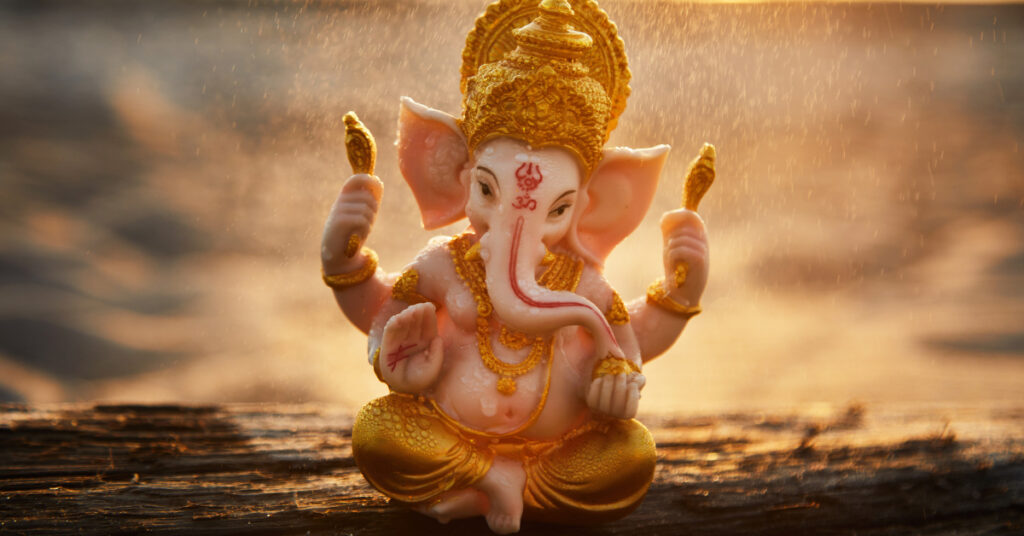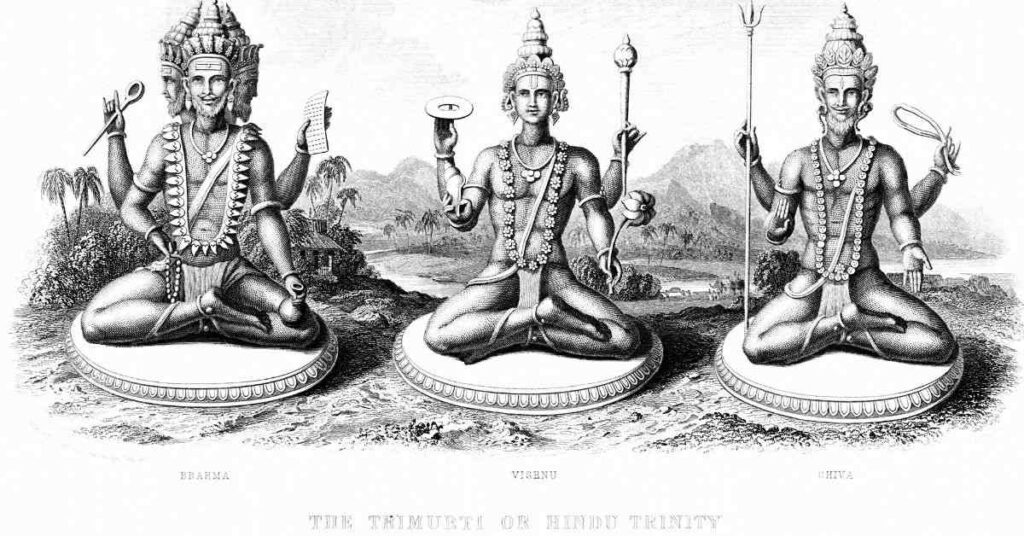Hanuman is one of the most important figures in Hinduism and has been venerated by devotees for thousands of years. Beyond being an iconic deity, Hanuman also holds a deep connection with nature – he is widely known as Pawan Putra or the “son of Wind.”

But why and how did this name come to be attributed to him? In this blog post, we will explore this intriguing relationship between Hanuman and wind, revealing just why our beloved god earned his interesting moniker!
Introduce the concept of Hanuman as an important figure in Hindu mythology
Hanuman is an essential character in Hindu mythology. In Hinduism, he is regarded as a symbol of strength, courage, and devotion, and is widely worshipped throughout India. Hanuman is depicted as a monkey; however, his superhuman strength and bravery set him apart from any other animal.
According to Hindu mythology, Hanuman played a significant role in the epic Ramayana, where he aided Lord Rama in his battle against Ravan, the demon king. With his strength and intelligence, Hanuman helps Rama rescue his wife Sita, and defeat Ravan.
Due to his unwavering loyalty, Hanuman is considered a respected and revered figure in Hindu mythology.
Explore two important stories related to Hanuman and why he is called ‘Pawan Putra’
Hanuman is one of the most revered gods in Hindu mythology. He is known for his extraordinary strength, courage, and loyalty. His stories are popular among adults and children alike. Also, read why Ganesh is worshipped first.
One of his most important stories is his role in helping Lord Rama rescue his wife, Sita, from the clutches of the demon king, Ravana. In this tale, Hanuman used his powers of flight and superhuman strength to leap across the ocean, locate Sita, and defeat Ravana’s armies. This demonstrated his bravery and selflessness.
Another important story is how Hanuman was gifted with the ability to fly by the wind god, Vayu. This is why he is called ‘Pawan Putra,’ the son of the wind. His flying ability allowed him to travel long distances and help Lord Rama in his battle against evil. Overall, Hanuman’s tales are fascinating and offer valuable life lessons about courage, loyalty, and selflessness.
Examine how Hanuman’s divine powers are attributed to him being the son of Vayu (the god of wind)
Hanuman, one of the most worshipped deities in Hinduism, is known for his divine powers.
These powers are often attributed to his being the son of Vayu, the god of wind. According to Hindu mythology, Vayu imparted his powers to his son Hanuman. As a result, Hanuman possesses the ability to fly, change size, and become invisible.
His immense strength and speed are also believed to be a result of his divine parentage. Additionally, Hanuman’s agility and martial arts skills make him a formidable warrior. Overall, Hanuman’s divine powers and abilities are a testament to the strength and influence of his father, Vayu.
Discuss the significance of Hanuman in modern Hinduism
Hanuman, the monkey god of Hinduism, has remained a significant figure for centuries. He is revered for his devotion to Lord Rama and his unwavering loyalty. In modern Hinduism, Hanuman still holds a strong presence in many people’s spiritual practices.
He is often seen as a symbol of strength and perseverance, which are essential qualities that many Hindus strive to embody. Hanuman’s incorruptible character and divine powers continue to inspire and provide hope for individuals seeking guidance, protection, and blessings.
Through his enduring legacy, he reminds us of the timeless teachings of courage, humility, and selflessness that remain relevant in today’s world.
Draw parallels between the stories related to Hanuman
The character of Hanuman is a popular figure in Hindu mythology, known for his strength, loyalty, and devotion to Lord Rama.
His stories have been passed down through generations and are an integral part of Indian folklore. Interestingly, many of the themes and motifs found in Hanuman’s tales can be found in pan-Indian myths as well.
From the quest for knowledge to the battle between good and evil, the stories of Hanuman and other Indian legends draw striking parallels. By examining these similarities, we gain a deeper understanding of the cultural and spiritual significance of these tales and the timeless messages they impart.
Conclusion
As we come to the end of this discussion about this fascinating character and his importance in Hinduism, I encourage all readers to continue to explore and learn more.
This figure holds immense significance for Hindus all around the world, and his stories and teachings continue to inspire and guide millions of people. By diving deeper into his life and beliefs, you may discover a new perspective on the world and enrich your own spiritual journey.
So go forth and explore, with an open mind and a willingness to learn. You may be surprised at what you discover.
To wrap it up, Hanuman has been an important figure in Hindu mythology for centuries and is still beloved today. Find the five facts about him.
With his superhuman strength, unwavering loyalty, and deep devotion to Lord Rama, he serves as not only a personal hero for many believers but also reminds us of the innate strength within that can be obtained through faith.
As we explore our own spiritual paths in the future, let us remember the teachings of Hanuman that come through the stories related to him- love leads to tremendous power, and loyalty to god will result in blessings beyond measure.
Read more about this amazing deity to continue the journey of uncovering this powerful legend and invitation into an age-old tradition with hundreds of years of powerful wisdom waiting to be discovered.


